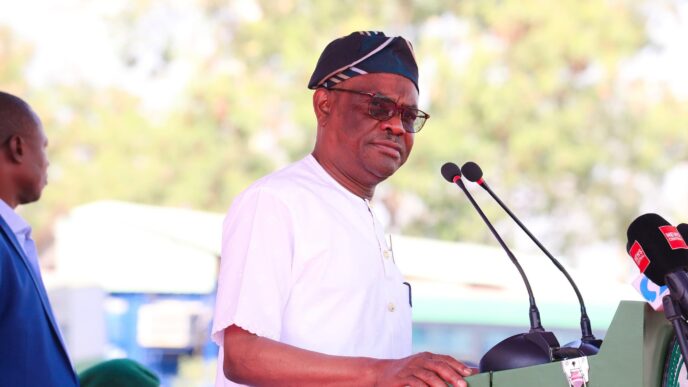Just when you think you have heard or seen it all in the convoluting story that is the nation’s telecommunications industry, you find out that the story hasn’t really started at all. In fact, more things begin to emerge from the cauldron of mysteries in the manner of what they call stranger than fiction.
Only last week, the misunderstanding between Kogi State and telecommunications service provider, MTN, boiled over, resulting in major service disruptions in the state. The likelihood of this development was very strange to my understanding because it didn’t look plausible that a state would intentionally want to jeopardise the possibility and opportunities for her people to communicate or transact business. But there it was, a normal business misunderstanding had been allowed to fester into a major wrench.
My initial doubt was quickly evaporated by the harsh words billowing out from officials of the Kogi State Utility Infrastructure Management and Compliance Agency (KUIMCA) and Kogi Inland Revenue Service (KIRS), who accused MTN of refusing to comply fully with the rules of operation as stipulated in the official gazette guiding their operation in the state.
“On my assumption of office last August, I went through their files and discovered that they have not fully complied with the rules guiding their operations in the state. I called them for a discussion where they complained of being overbilled concerning the area of the state covered by their optic fibre. I went with them for a verification exercise to assess their claim, which took about 4 days, and we found out they were even covering more areas than they claimed. We asked them to go and make the necessary payment, but MTN refused. That is why we sealed off their facilities after obtaining a court order to do so,” Dr Taofeeq Isah, Director General of the agency told a team of journalists.
Advertisement
The action of the agency, this writer gathered, affected about 14 base stations, some of which are super base stations directly impacting about 147 sites. The agency cut some fibres and planted some state security personnel in the locations in order to effect a complete shut down. It is very likely that the shut down of the the operator’s services may be more extensive and damaging than the state can ever contemplate.
This is not very comforting especially for a nation that considers telecommunications infrastructure as part of the national critical infrastructure that must be insilutated from wilful damage except through force majeure. The telecoms infrastructure is very much part of the nation’s security architecture which calls for maximum attention and protection today, especially because of growing security challenges. Which is why the action of the state should have attracted the attention of the National Security Adviser. I do not want to assume that his plate is too full to find a place for a very unlikely development that has lingered in Kogi for over two weeks.
But does the State have a right to engage with operators and make some demands? It is my considered opinion that in a federation, Kogi is free to carry out engagements with those conducting businesses in the state but such engagements must be reasonable and within limits in order not to harm the state.
Advertisement
There are always demands on any sector that is succeeding and the telecommunications sector has endured worse things, even globally. The sector is seen as low hanging fruits to bring easy money to the various governments. The belief is that operators are very rich.
Only in 2023, in communications with the regulator, the Nigerian Communications Commission (NCC), four major mobile operators – Airtel, Globacom, MTN and 9Mobile who are memebers of the Association of Licensed Telecommunications Operators of Nigeria (ALTON), bemoaned a plethora of 54 different taxes levied on them which made it difficult for them to expand services or even make good returns, pleading with the regulator to take their concerns to the government.
The pressure on the operators comes from the federal and state governments and Kogi only escalated the demand to an intolerable level in what looks more of sabotage backed by the state courts. For instance, a 2019 state law which makes right of way (RoW) renewable was also made retroactive and it put pressure on operators to make all kinds of payments. The state law is a subect of litigation.
If you ask my opinion, Kogi State shouldn’t be on the lane it is at the moment. I will give a few reasons. One. Kogi state is like an ‘ungoverned space’ in terms of telecoms development and deployment. Only recently, this writer raised alarm that going through the state, there was hardly any service in the major roads leading into and out of Kogi. Should there be an emergency what will the person on the road do?
Advertisement
Two. This writer is aware that the regulator has been making appeals to state governments to waive right of way (RoW) charges so as to attract more investments that will in turn lead to development. At the moment, seven states have jumped on board while quite a number are on the waiting list, weighing all the options. It is nearly anachronistic or even anathema to be making the kind of oppressive revenue demands with officials making a gloat of their action.
Three. And this should be of grave concern to the Kogi government. The state should worry about people’s impression of its activities. Two industry sources told this writer that Kogi is the worst state to do business in Nigeria because officials torment business operators with state laws and state courts.
They maintained that blinded by its revenue objective, the state doesn’t care about what happens to its people. “The implication of what is happening is that they are destroying the economy of the state while punishing their people. What is happening is strange and the victims are the people,” they explained.
They also informed that businesses watch how other corporate bodies are being treated. No investor will want to go to Kogi in a hurry, they said.
Advertisement
I am persuaded to agree with them. My position always is that as a people our fidelity to statistics is highly questionable. It’s either we base our population on projections and assumptions or we are forever rebasing to generate friendly figures. Were the Kogi state government to do an impact analysis of its action on the people and businesses in the areas affected, I am sure it would have canvassed for a more conciliatory resolution. But there will always be the hardliners who are ever ready to push the government over the cliff with sugar-coated arguments based on illogic. Unfortunately, they always have the prominent seats at the table.
The telecoms impasse in Kogi State has no place in common sense. The state is on a path not steeped in modernity. Perception of the state is already very bad – in the news for violent politics and sundry criminality. The state should be doing more to attract investors and not drive them away. Telecoms is a ready product to market a state.
Advertisement
Views expressed by contributors are strictly personal and not of TheCable.












